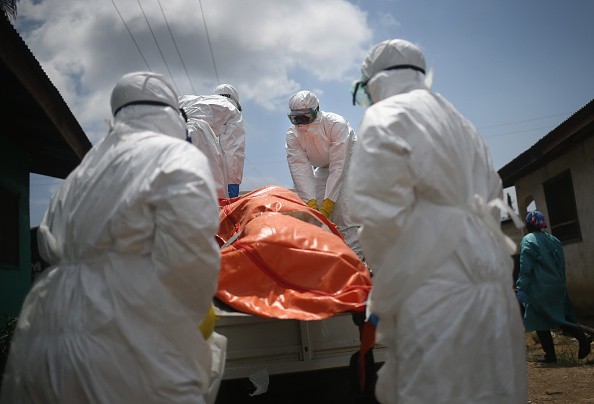
The Ebola epidemic is still continuing in Guinea, the West African country where it started. Instead of the outbreak being halted, as it was in neighboring Liberia, there were 27 new cases in a week, which is a major spike. One major reason is that the people of Guinea are sticking with their traditional funeral practices.
A person who has died of Ebola is highly contagious. Health authorities strongly recommend that no one touch the corpse of someone who died of Ebola, but this restriction is not being followed. Tradition in Guinea dictates that family and friends give the deceased a proper send off. If the person has died away from their home village, they often try to bring the body home for burial.
Guinea has passed laws against transporting bodies of Ebola victims, but people are getting around these restrictions any way they can. There are reports that people in Guinea are transporting bodies on public transportation in order to get them back to their home villages. In some cases, they are sitting the deceased upright in a taxi between other passengers to make it look as if he or she is still alive.
Fighting this epidemic has tested an entire region's Christian, Muslim, and ethnic funeral traditions, practices that provide closure for families. Many West Africans have traditions that the deceased need to be handled and buried in a certain ways. Family members usually wash and dress the body using their bare hands, a practice that has helped spread the disease.
Medical authorities who have tried to separate the dying or deceased from their families have been attacked in some communities. During the height of the epidemic in Guinea, health workers who were distributing literature about Ebola were killed.
Some of these problems have been helped by greater cultural sensitivity on the part of health workers. Both health workers and burial teams have adapted their practices.
More than 2,400 people have died of Ebola in Guinea. There is some fear that the disease will cross the border into the neighboring country of Guinea-Bissau.

